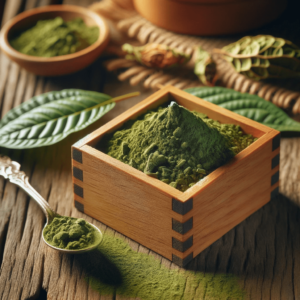The sweeping tariffs imposed by the Trump administration have sent shockwaves through global trade, with industries from Southeast Asia to North America scrambling to assess the fallout. Among the hardest hit are kratom farmers in Indonesia, who fear that the newly implemented 32% U.S. import tariffs could cripple their export-dependent industry.
Kratom Farmers Brace for Economic Uncertainty
In Kapuas Hulu, West Kalimantan, kratom farmers and buyers are growing increasingly anxious. While prices remain stable for now, local stakeholders worry that prolonged tariff policies could disrupt the delicate balance of supply and demand. Reduced imports to the U.S. could drive prices down at the farmer level, threatening livelihoods in a region where kratom cultivation is a primary source of income.
Economic analysts warn that the impact of these tariffs extends beyond kratom. Indonesia’s broader export sectors—including textiles, palm oil, and rubber—could also suffer, leading to declining wages, reduced production, and rising unemployment.
Indonesia’s Response: Seeking Trade Solutions
Indonesian officials are under pressure to mitigate the impact of these tariffs. Farmers and buyers are urging the government to leverage trade relations with the U.S. to negotiate more favorable terms. Some experts suggest that Indonesia should align with ASEAN and other trading partners to counteract U.S. trade policies.
In recent months, Indonesia has implemented stricter export regulations to ensure the quality and safety of kratom products shipped to the U.S. and other countries. However, these new measures have inadvertently created a massive backlog of kratom shipments at Indonesian ports, as exporters await inspection and permits.
Global Trade Disruptions: The Bigger Picture
The kratom industry is just one of many sectors feeling the strain of the Trump administration’s aggressive tariff policies. Across the world, businesses are scrambling to adjust to the new trade landscape. According to economic experts, the tariffs have triggered one of the largest trade diversions in modern history, redirecting billions of dollars in exports originally bound for the U.S. to other markets.
The American dietary supplements industry is also feeling the pressure. Cal Bewicke, CEO of Ethical Naturals, told SupplySide Supplement Journal:
“The issue here is that supply chains these days in almost all industries are multi-national, and this of course includes the supplement industry. To manufacture products in the U.S., most companies need to use some ingredients from overseas. There is no quick way to build extraction and vitamin raw material production facilities in the U.S., so as long as these tariffs are in place, costs will be higher.”
Could Tariffs Lead to a Global Recession?
Some economists warn that the U.S. tariff strategy could push the global economy into recession. J.P. Morgan recently raised its forecast for a global downturn, citing the disruptive effects of trade barriers. The tariffs have already led to higher costs for American businesses, which are likely to pass those expenses onto consumers.
Meanwhile, China, Vietnam, and other affected nations are exploring ways to redirect their exports to alternative markets. The auto industry, electronics sector, and agricultural exports are all facing uncertainty as manufacturers reconsider supply chains and pricing strategies.
What’s Next?
As the world watches the unfolding trade war, Indonesian kratom farmers remain in limbo. Will the Indonesian government successfully negotiate relief? Will ASEAN nations band together to counteract U.S. trade policies? And most importantly—how will American consumers react to rising costs across industries?
For now, the only certainty is uncertainty.
Tags: kratom, kratom industry, indonesia, Trump tariffs, President Trump, Trump administration, trade policy, economy, kratom exports, price of kratom



